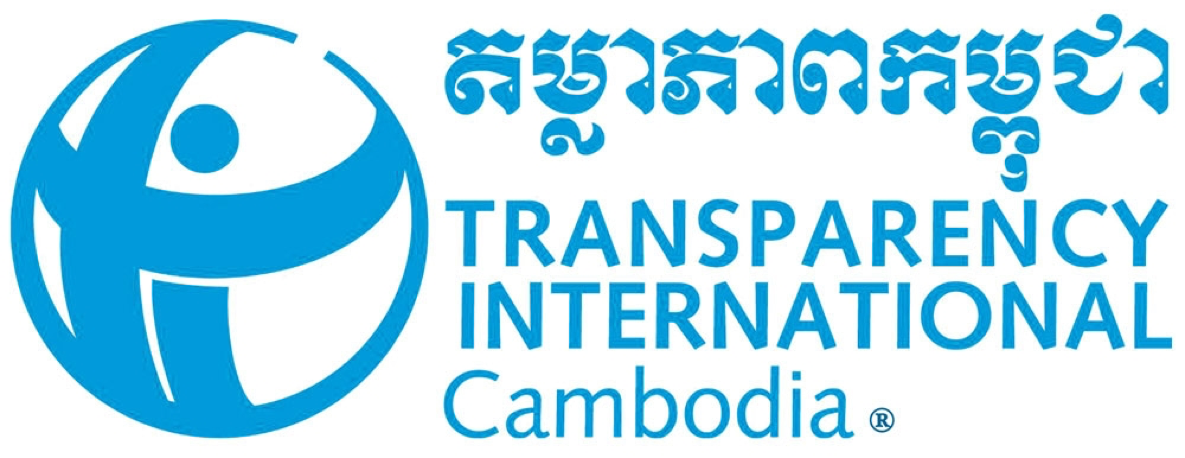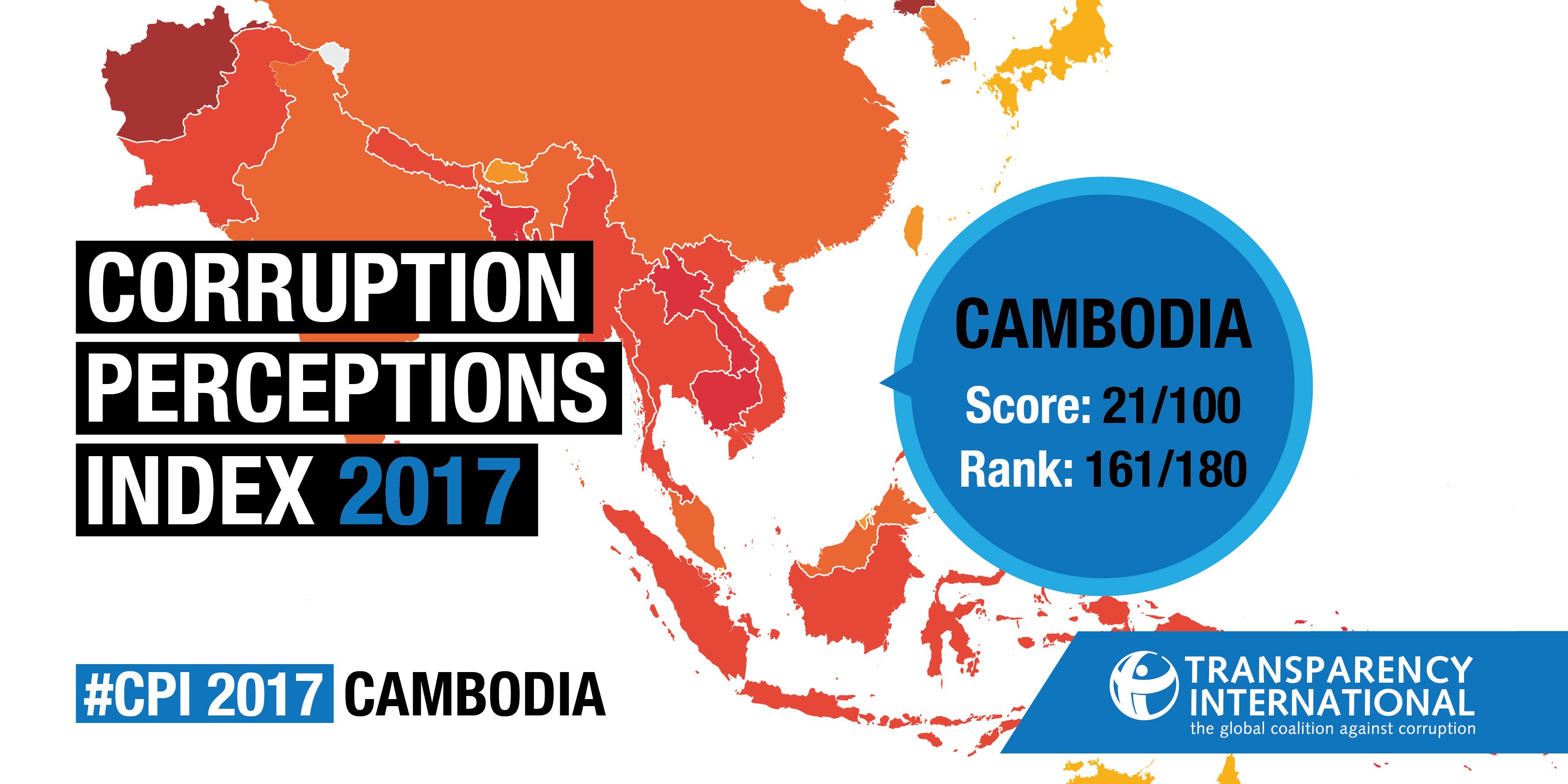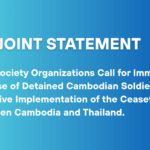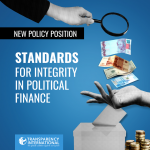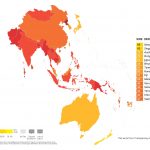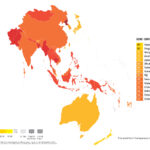Corruption Perceptions Index (CPI) 2017
Press Release
Phnom Penh, 22 February 2018 – The Transparency International Secretariat in Berlin, Germany released the results of the Corruption Perception Index (CPI) for 2017. The index, which ranks 180 countries and territories by their perceived levels of public sector corruption according to experts and private sector professionals, uses a scale of zero to 100, where zero is highly corrupt and 100 is very clean. This year, the index results indicated that more than two-thirds of countries score below 50, with an average score of 43. The index also shows that in the last six years, many countries are still making little to no progress. Even more alarming, the analysis of the index indicates that countries with the worst rates of corruption also tend to pose the greatest threat to civil society and media.
In 2017, Cambodia scores 21 out of a maximum score of 100, which means that Cambodia has maintained the same score for the past four years, and is ranked 161 in the global ranking among 180 countries and territories included in the CPI. The change in Cambodia’s rank in the 2017 CPI is due to the inclusion of four additional countries to the Index from 176 (in 2016) to 180 (in 2017). Given these additions, Cambodia’s change in rank cannot be interpreted to mean that Cambodia’s performance in 2017 is worse than in previous years.
The 2017 results show that despite some of the government’s recent positive efforts, including noticeable steps in improving the legal and regulatory framework, and improvements in corporate registries and revenue collection, these efforts may not be sufficient to change the perception of the expert and business community on the status of corruption in the public sector. Many fundamental anti-corruption reforms recommended by governance and anti-corruption experts have not been undertaken in an effective and timely manner. Reducing corruption in the judiciary and promotion of access to justice are still areas that need urgent response. TI Cambodia has suggested amendments to a number of articles in the current Anti-Corruption Law, including emphasizing the importance of public asset declaration and including spouses and immediate family members in asset declaration requirements. Finally, TI Cambodia has recommended efforts to put in place relevant regulation and mechanism to address nepotism and conflicts of interest in public institutions.
“Although Cambodia’s score remains the same as last year, we have observed some encouraging Government efforts to implement the reform agenda which have yielded some concrete results, for example the increased revenue from tax collection, and reduction of petty corruption in providing some essential public services to the people among other noticeable reformed areas” said Rath Sophoan, Chairman of the Board of Directors of TI Cambodia. “But unless fundamental reforms take place, it is hard to foresee a shift in the perception on corruption in the CPI” he added.
From a regional perspective, Cambodia has once again received the lowest score compared with other countries in the ASEAN region and the third lowest in the Pacific. While Cambodia’s score for the 2017 CPI remains unchanged, many countries in ASEAN have improved noticeably. For instance, Brunei increases 4 points (from 58 to 62), Thailand increases 2 points (from 35 to 37), Vietnam increased 2 points (from 33 to 35), and Myanmar increases 2 points (from 28 to 30). However, the results of a few countries in the region have either stagnated or declined. Malaysia decreases 2 points (from 49 to 47), Philippine decreases 1 point (from 35 to 34), and Laos decreases 1 point (from 30 to 29), while Singapore (84) and Indonesia (37) remain unchanged.
“Cambodian Government should also make efforts to promote active participation of civil society, non- governmental organizations and community- based organizations, in the prevention of and the fight against corruption and to raise public awareness regarding the existence, causes and gravity of and the threat posed by corruption as stipulated in Article 13 of the UN Convention Against Corruption (UNCAC) which Cambodia had ratified” said Preap Kol, Executive Director of TI Cambodia.
TI Cambodia once again calls upon the government to step up and make bold and structural reforms as a matter of priority. The draft laws on the Protection of Reporting Person and on the Protection of Witness, Expert and Victim and the law on Access to Information should be passed in a timely manner. Ensuring an independent judiciary is key to building public trust and enhancing confidence among investors. The government should also ensure an enabling environment for anti-corruption, rule of law and democratic governance to flourish. TI Cambodia is committed and stands ready to engage with the government and all relevant stakeholders to help implement key reforms and to promote greater transparency, integrity, accountability and sustainable and democratic development in Cambodia.
About the Corruption Perceptions Index (CPI)
Established in 1995, the Corruption Perceptions Index (CPI) is a composite index that ranks countries and territories from around the globe based on how corrupt their public sector is perceived to be, from a scale of 0 (highly corrupt) to 100 (very clean). It aggregates data from a number of different reputable sources that provide perceptions of business people and in-country experts of the level of corruption in the public sector.
The 2017 CPI ranks 180 countries and territories, drawing on up to 13 surveys covering expert assessments and views of business people. In the case of Cambodia, eight sources were used – namely:
- The Bertelsmann Stiftung Transformation Index 2017-2018,
- The Economist Intelligence Unit Country Risk Service 2017,
- The Global Insight Country Risk Ratings 2016,
- The Political and Economic Risk Consultancy Asian Intelligence 2017,
- The World Bank – Country Policy and Institutional Assessment 2017,
- The World Economic Forum Executive Opinion Survey (EOS) 2017,
- The World Justice Project Rule of Law Index Expert Survey 2017-2018,
- The Varieties of Democracy (V-Dem) 2017.
To view the results and relevant data sources, visit: here.
###
Transparency International Cambodia (TI Cambodia) is a National Chapter of Transparency International, a neutral and independent civil society organisation leading the fight against corruption. The organisation has a mission to work with all key stakeholders including the Government, Civil Society Organisations, Private Companies, other relevant stakeholders and citizens to promote transparency, integrity and accountability and reduce corruption in Cambodia.
សម្រាប់សេចក្ដីថ្លែងការណ៍ព័ត៌មានជាភាសាខ្មែរ សូមចុច PRESS RELEASE_CPI 2017_KH_Final
For Frequently Asked Question, please Click CPI_2017_FAQs_EN
សម្រាប់សំណួរដែលសួរជាញឹកញាប់ សូមចុច
For presentation on the result, please Click CPI 2017-Result Presentation_ENG_Final
សម្រាប់បទបង្ហាញអំពីលទ្ធផលនៃការសិក្សា សូមចុច CPI 2017-Result Presentation-KH_Final
For presentation on Methodology, please Click CPI 2017-Methodology Presenation-ENG_Final
សំរាប់បទបង្ហាញអំពីវិធីសាស្រ្តនៃការសិក្សា សូមចុច CPI 2017_Methodology Presentation_KH_Final
###
Transparency International Cambodia (TI Cambodia) is a National Chapter of Transparency International, a neutral and independent civil society organisation leading the fight against corruption. The organisation has a mission to work with all key stakeholders including the Government, Civil Society Organisations, Private Companies, other relevant stakeholders and citizens to promote transparency, integrity and accountability and reduce corruption in Cambodia.
This post is also available in: Khmer
 English
English ភាសាខ្មែរ
ភាសាខ្មែរ